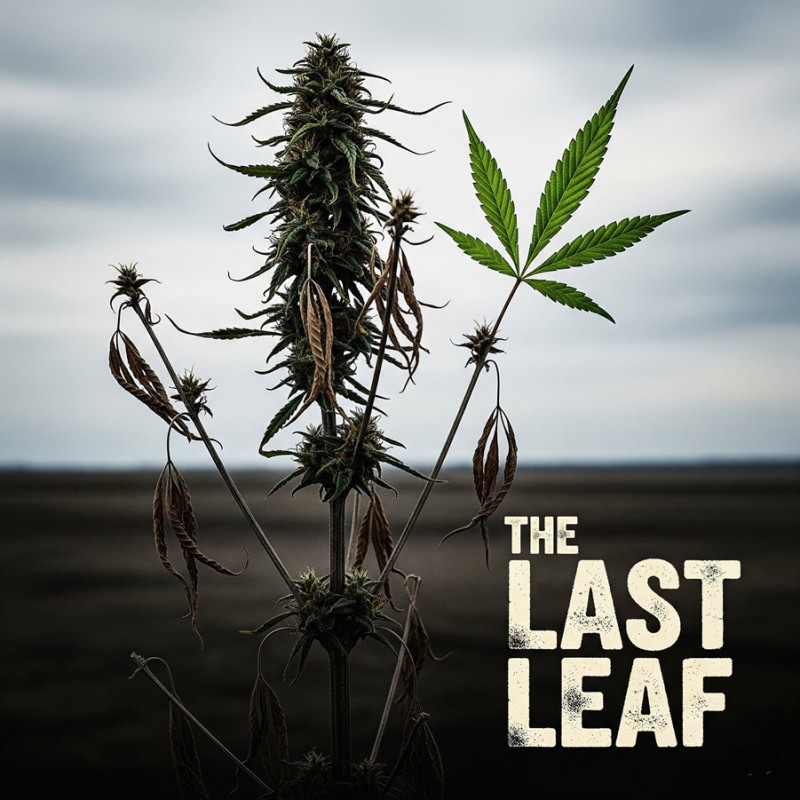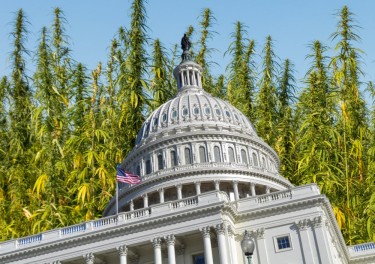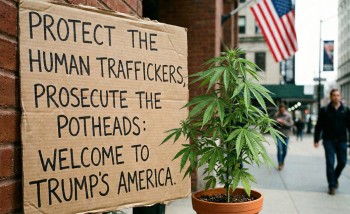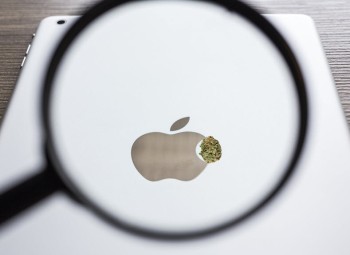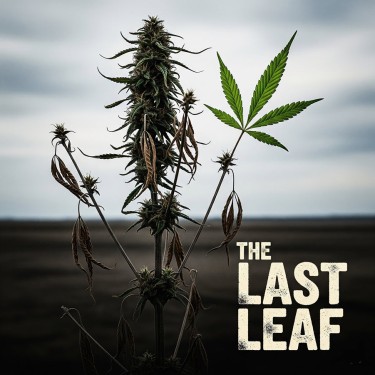
Hemp Gets a One-Year Reprieve: Why Congress Hates Your Freedom
The U.S. Senate just gave the hemp industry a temporary stay of execution, delaying by one year a catastrophic ban that would have obliterated a $28 billion economic engine overnight. But don't celebrate yet - this isn't mercy, it's political theater designed to give the appearance of reasoned deliberation while the same prohibitionist forces that brought us the War on Drugs prepare to crush an industry that accidentally proved cannabis legalization works perfectly fine.
The architect of this legislative assault? None other than Mitch McConnell, the 82-year-old political fossil who championed hemp legalization in 2018 but now wants to destroy what he helped create. This is the same McConnell who's been having public episodes where he freezes mid-sentence and stares into the void like a malfunctioning robot, yet somehow still wields enough power to single-handedly torpedo an entire industry that employs hundreds of thousands of Americans.
Let's be crystal clear about what's happening here: Congress wants to ban "intoxicating hemp products" not because they're dangerous - they're demonstrably safer than alcohol - but because they accidentally created a preview of real cannabis legalization, and it turned out perfectly fine. No societal collapse, no spike in crime, no mass addiction epidemic. Just adults peacefully consuming cannabis products in a regulated market while generating billions in economic activity.
This terrifies the control freaks in Washington because it proves their entire prohibition framework is built on lies. For decades, they've claimed that cannabis legalization would destroy America, but hemp-derived THC products have been widely available for years with none of the predicted catastrophes materializing. Instead of admitting they were wrong, they're trying to memory-hole the evidence by banning the products that proved them wrong.
The real agenda here isn't public safety - it's protecting Big Pharma's monopoly on consciousness-altering substances while maintaining government control over what adults can put in their own bodies. When 86% of Americans support cannabis legalization but Congress keeps trying to ban it, you're witnessing a government that serves corporate masters rather than the people who elect them.
McConnell's Cognitive Dissonance Campaign
Watching Mitch McConnell champion the destruction of an industry he personally created is like watching a man burn down his own house while insisting he's protecting property values. The same senator who proudly shepherded hemp legalization through Congress in 2018 now claims that allowing people to get high from hemp products was an "unintended consequence" that must be eliminated.
This is either breathtaking intellectual dishonesty or evidence that McConnell genuinely didn't understand what hemp legalization would accomplish. Given his recent public episodes of staring blankly into space during press conferences, both explanations are plausible. Either way, it's terrifying that someone this confused about his own legislation still has the power to destroy entire industries.
McConnell's justification for the hemp ban reads like a greatest hits compilation of prohibition propaganda. He claims that hemp-derived THC products "flood the market in the absence of regulatory structure" and use "deceptive and predatory marketing towards children." These are the same arguments prohibitionists have used against cannabis for decades, and they're just as false now as they were then.
The senator seems particularly concerned about packaging that resembles "existing food products such as Oreos, candy, gummies and cereals." This moral panic about attractive packaging ignores the fact that alcohol companies have been marketing colorful, sweet-tasting products to young adults for decades without Congressional intervention. Apparently, it's only problematic when cannabis companies use similar marketing strategies.
McConnell's claim that the 2018 Farm Bill was intended to "create an agricultural hemp industry—not open the door to the sale of unregulated, intoxicating lab-made, hemp-derived substances" reveals either stunning ignorance about the legislation he championed or deliberate historical revisionism. Hemp has been used to produce intoxicating substances for thousands of years. Legalizing hemp cultivation while pretending that psychoactive compounds wouldn't be extracted from it is like legalizing grape growing while acting shocked that someone made wine.
The timing of McConnell's hemp prohibition crusade also raises questions about his motivations. As a lame-duck senator preparing for retirement, he has nothing to lose politically from taking unpopular positions. This suggests that his hemp ban isn't about electoral considerations but about legacy management - perhaps trying to appease the pharmaceutical and alcohol industries that have lobbied against cannabis legalization for decades.
Senator Jeff Merkley's attempt to find middle ground - preserving non-intoxicating CBD products while restricting "hallucinogenic factors" - demonstrates how even well-intentioned legislators don't understand the technical realities of hemp processing. CBD products almost always contain trace amounts of THC, which means that any ban on "quantifiable" THC levels would eliminate the entire hemp industry, not just the intoxicating products.
The one-year delay gives the industry time to prepare for destruction rather than time to develop better regulations. McConnell made this clear when he said he's simply giving "hemp farmers ample time to prepare for their future" rather than expressing interest in finding regulatory solutions that preserve the industry. It's a death sentence with a twelve-month appeals process.
The Real Agenda: Control Over Consciousness
The Congressional assault on hemp products isn't really about hemp - it's about maintaining government control over consciousness-altering substances while protecting pharmaceutical monopolies. The hemp "loophole" accidentally created a preview of what cannabis legalization would look like, and the results terrified prohibition advocates because they proved that their entire worldview is wrong.
For years, prohibitionists have claimed that cannabis legalization would lead to increased youth usage, public safety crises, and social breakdown. Hemp-derived THC products have been widely available across the country for years, and none of these predicted catastrophes have materialized. Instead, we've seen exactly what cannabis advocates predicted: adults peacefully using cannabis products while the economy benefits from tax revenue and job creation.
This empirical refutation of prohibition ideology cannot be allowed to stand, so Congress is trying to eliminate the evidence. By banning hemp-derived THC products, they can return to fear-mongering about hypothetical cannabis legalization without having to confront the reality that cannabis legalization is already happening successfully.
The pharmaceutical industry's fingerprints are all over this legislation. Companies like Johnson & Johnson, Pfizer, and Abbott Laboratories have spent millions lobbying against cannabis legalization because it threatens their monopoly on anxiety, pain, and sleep medications. Hemp-derived THC products provide consumers with alternatives to expensive pharmaceuticals, which cuts into profit margins for drug companies.
Representative Andy Harris, the noted cannabis prohibitionist leading the House version of the hemp ban, has received substantial pharmaceutical industry contributions throughout his career. His claim that hemp products pose public safety risks while simultaneously supporting opioid medications that kill tens of thousands of Americans annually reveals the hypocrisy at the heart of prohibition politics.
The alcohol industry's opposition to hemp products is equally transparent. Wine & Spirits Wholesalers of America initially supported the hemp ban but recently called for more targeted restrictions that would preserve "naturally derived cannabinoids" while banning synthetic products. This suggests they recognize that hemp products compete with alcohol sales and want regulations that minimize that competition.
The foreign influence angle that many observers note but can't directly address adds another layer to this control agenda. Certain allied nations have extremely punitive cannabis laws and may be pressuring U.S. policymakers to maintain prohibition to avoid undermining their own domestic control systems. When American cannabis legalization succeeds, it becomes harder for authoritarian allies to justify executing their own citizens for cannabis use.
Most fundamentally, this is about bodily autonomy and individual sovereignty. When 86% of Americans support cannabis legalization but Congress keeps trying to ban cannabis products, you're witnessing a government that views citizens as subjects to be controlled rather than free individuals with inherent rights. The hemp ban represents the assertion that government knows better than you do what you should be allowed to put in your own body.
The Economic Sabotage Agenda
The proposed hemp ban represents one of the most destructive acts of economic sabotage in recent Congressional history. The hemp industry employs hundreds of thousands of Americans, generates billions in tax revenue, and provides agricultural opportunities for farmers transitioning away from traditional crops. Destroying this industry overnight would eliminate jobs, shutter businesses, and devastate rural communities that have come to depend on hemp cultivation.
The $28 billion hemp industry didn't emerge from government planning or corporate investment - it grew organically from entrepreneurial innovation and consumer demand. Small businesses across the country built supply chains, developed products, and created jobs based on the legal framework that Congress established in 2018. Now Congress wants to pull the rug out from under these businesses because politicians don't like the fact that some hemp products get people high.
The human cost of the hemp ban extends far beyond economic statistics. Thousands of entrepreneurs who invested their life savings in hemp businesses would face bankruptcy. Farmers who planted hemp crops expecting to harvest them under existing laws would lose their investments. Employees throughout the supply chain would lose their jobs. Consumers who rely on hemp products for medical conditions would lose access to effective treatments.
The regional impact would be particularly severe in rural areas where hemp cultivation has provided economic opportunities in communities abandoned by traditional industries. Kentucky, McConnell's own state, has seen hemp farming revitalize agricultural communities hit hard by the decline of tobacco farming. McConnell's hemp ban would essentially force these communities back into economic depression.
The timing of the ban creates additional economic chaos. Rather than implementing new regulations gradually or providing transition periods for businesses to adapt, the proposed legislation would effectively criminalize an entire industry overnight. Companies that are currently legal would suddenly become illegal, with all the criminal liability that entails.
The international competitiveness implications are equally problematic. While Congress debates banning hemp products, other countries are developing their own hemp industries to capture market share. Canada's hemp industry continues growing while U.S. businesses face existential threats from their own government. This represents a massive self-inflicted wound to American agricultural and manufacturing competitiveness.
The tax revenue losses from the hemp ban would force state and local governments to either cut services or raise taxes on other economic activities. States that have built hemp taxation into their budgets would face immediate shortfalls, while the federal government would lose billions in potential revenue from a thriving legal industry.
The Sticky Bottom Line: Freedom vs. Control
The one-year delay on the hemp ban isn't a victory - it's a brief reprieve before execution. Congress has made clear its intention to destroy a thriving industry that accidentally proved cannabis legalization works perfectly fine. The only question is whether the American people will allow their representatives to eliminate jobs, crush businesses, and restrict personal freedom to serve pharmaceutical industry profits.
This fight represents something much larger than hemp policy. It's about whether Americans live in a free country where adults can make their own choices about their bodies and their consciousness, or whether we live in a corporate oligarchy where government enforces business monopolies through criminal law. The hemp ban exposes the reality that American democracy has been captured by special interests that view citizen autonomy as a threat to their control.
The 86% of Americans who support cannabis legalization need to understand that their representatives don't care about their opinions. When politicians consistently vote against the overwhelming will of their constituents, they're revealing that they serve other masters. The hemp ban isn't happening because it's popular - it's happening because it serves the interests of pharmaceutical companies, alcohol distributors, and control-obsessed bureaucrats.
Mitch McConnell's cognitive decline shouldn't be a source of humor when he retains the power to destroy entire industries through legislative confusion. A senator who freezes mid-sentence during press conferences shouldn't be making complex policy decisions that affect hundreds of thousands of jobs. The fact that he's retiring makes his hemp crusade even more destructive because he has no accountability to voters for the economic carnage he's creating.
The hemp industry's accidental preview of cannabis legalization revealed the fundamental lie at the heart of prohibition: cannabis is not dangerous, it doesn't destroy communities, and it doesn't create public safety crises. Instead, legal cannabis markets create jobs, generate tax revenue, and provide consumers with safer alternatives to alcohol and pharmaceuticals. This truth is so threatening to prohibition advocates that they're willing to destroy a legal industry to prevent people from recognizing it.
The real question is whether Americans will fight back against this assault on their freedom and their economy. The hemp industry represents everything that makes America great: entrepreneurial innovation, individual liberty, and economic opportunity. Congress wants to destroy it to serve corporate masters and maintain government control over consciousness.
If we let them succeed with hemp, cannabis legalization will never happen. If we let them succeed with cannabis, they'll come for other freedoms next. The hemp ban is a test of whether Americans still have the power to resist government overreach or whether we've become too passive to defend our own interests.
The choice is simple: fight for hemp freedom now, or accept permanent subjugation to the pharmaceutical-industrial complex. There won't be another chance to get this right.

